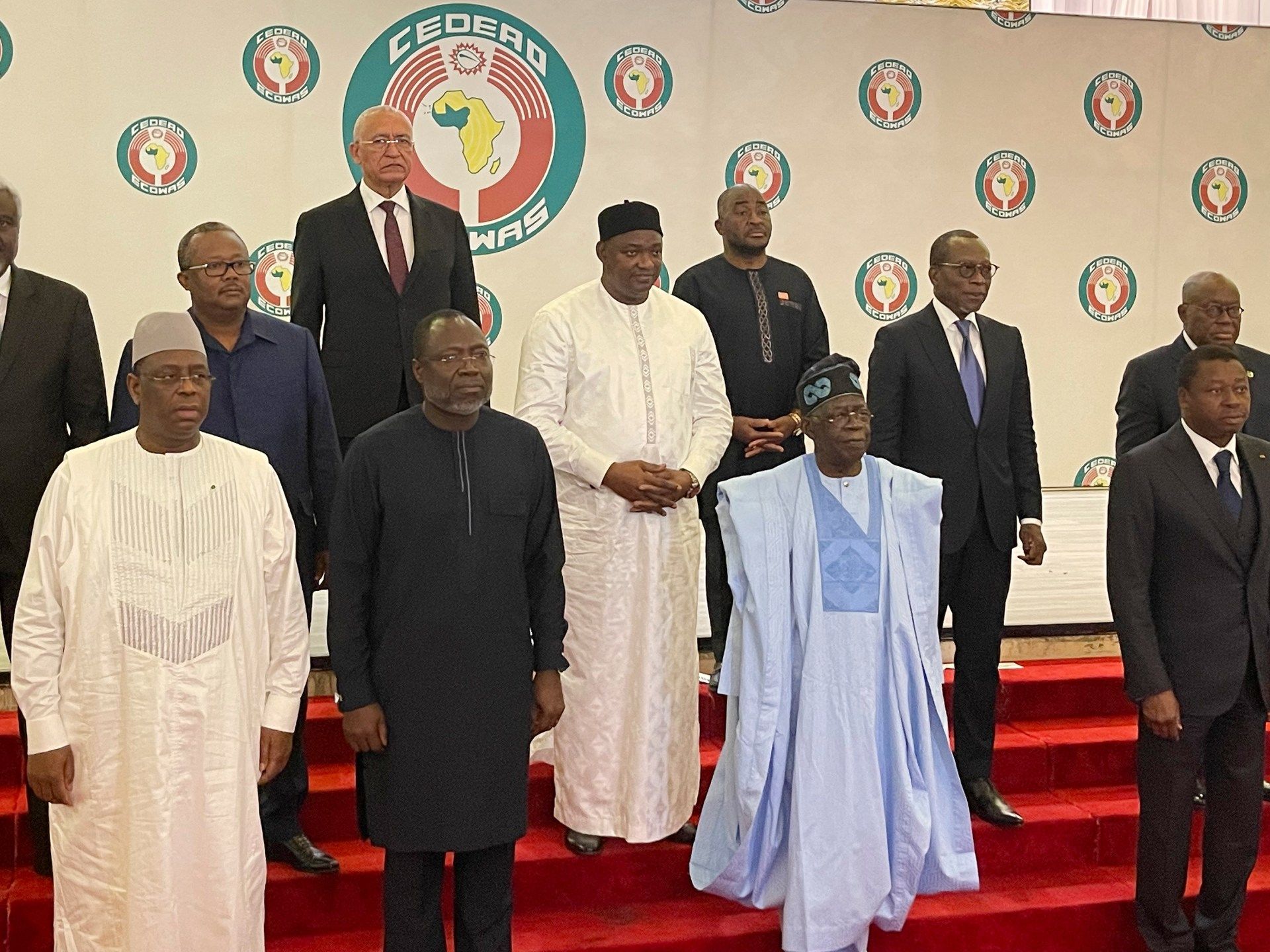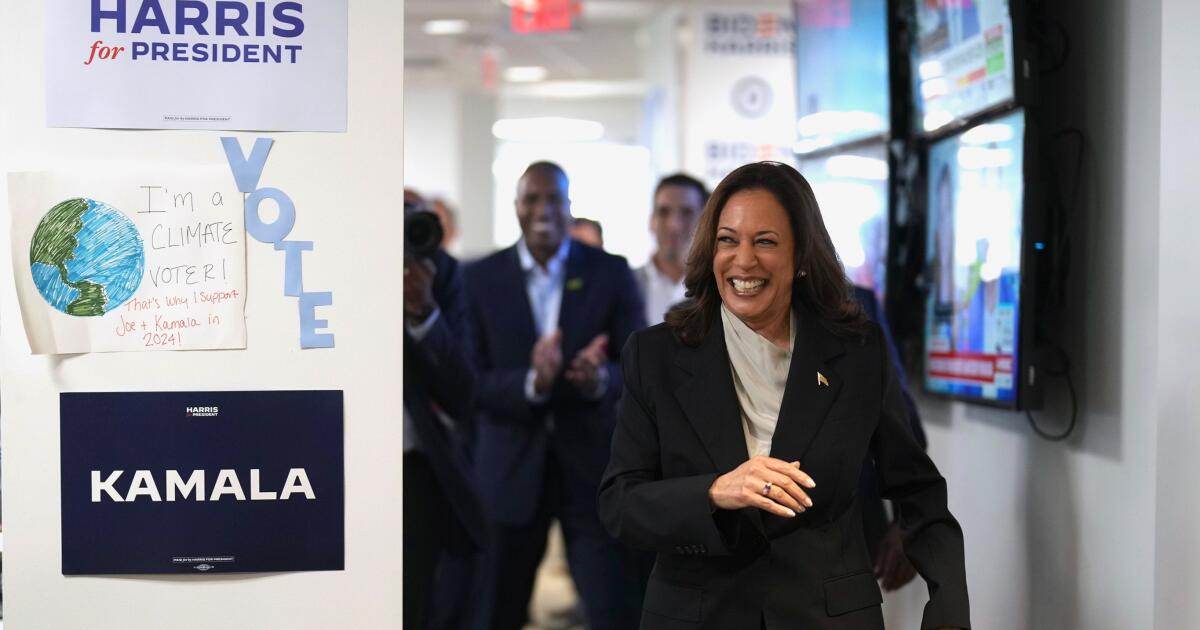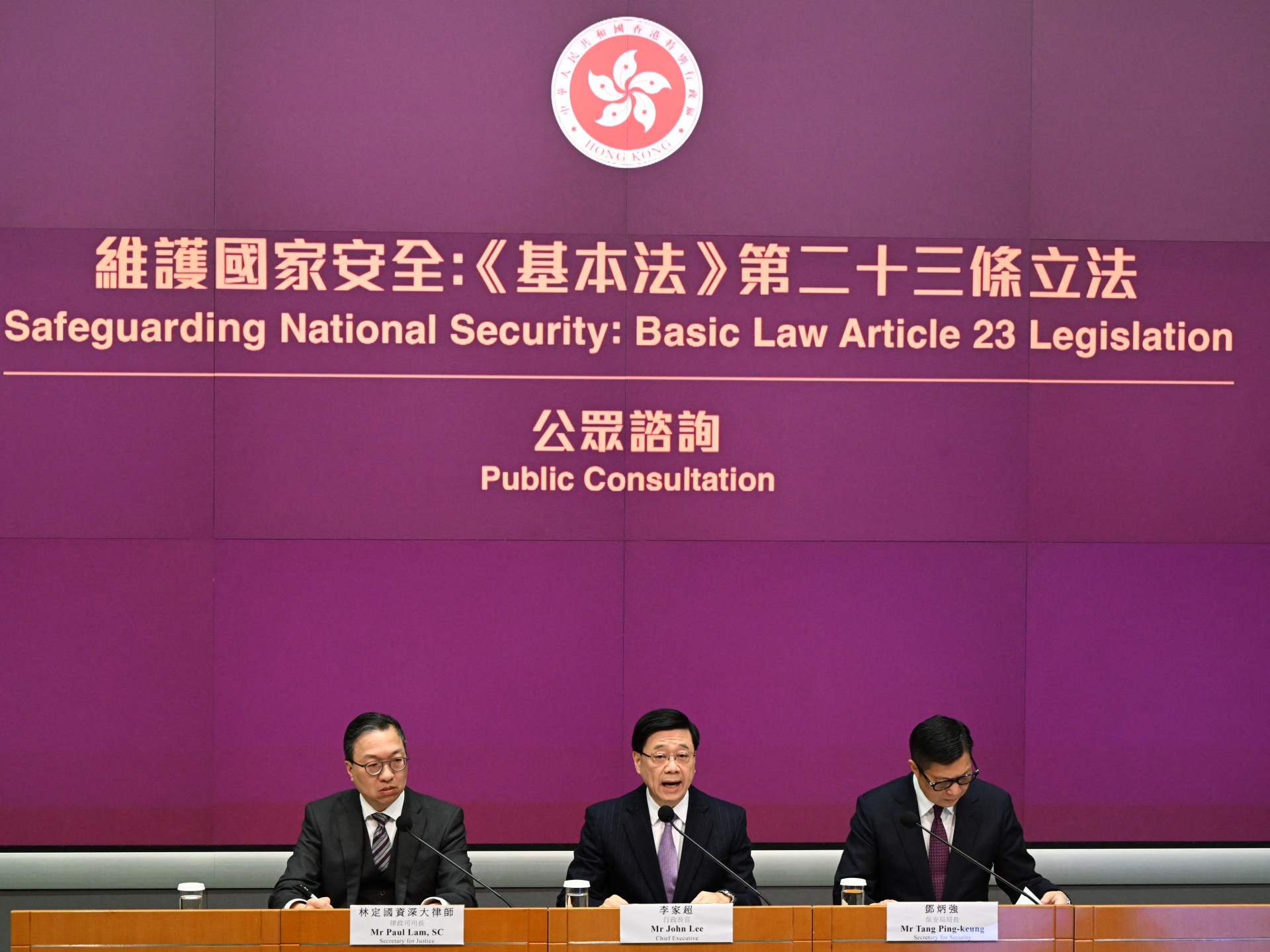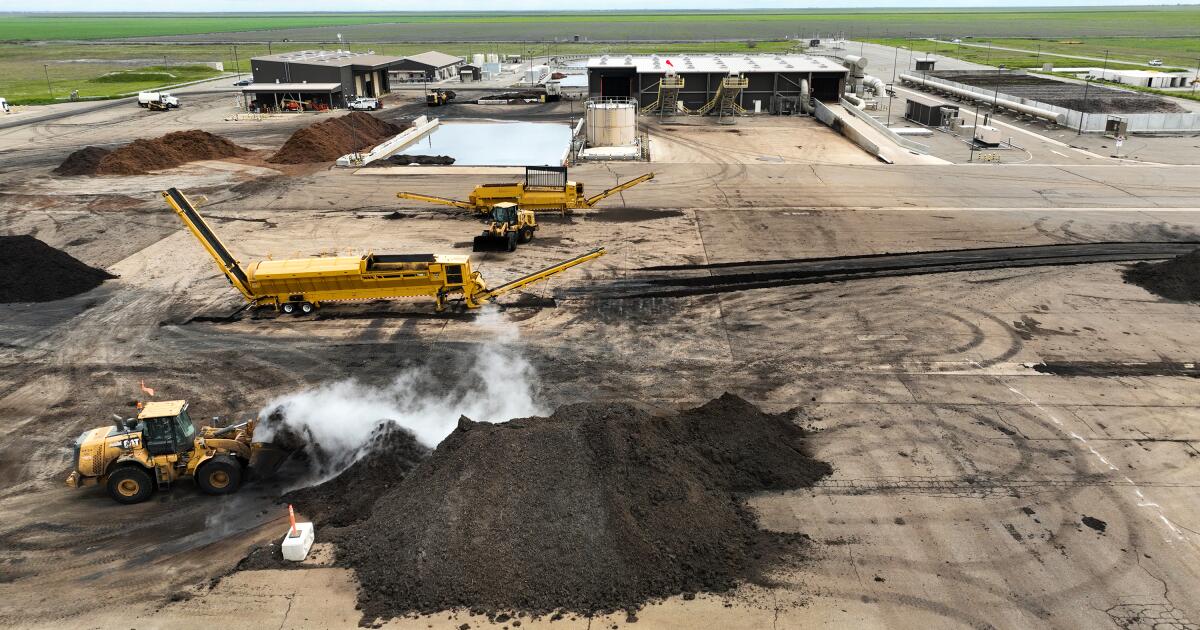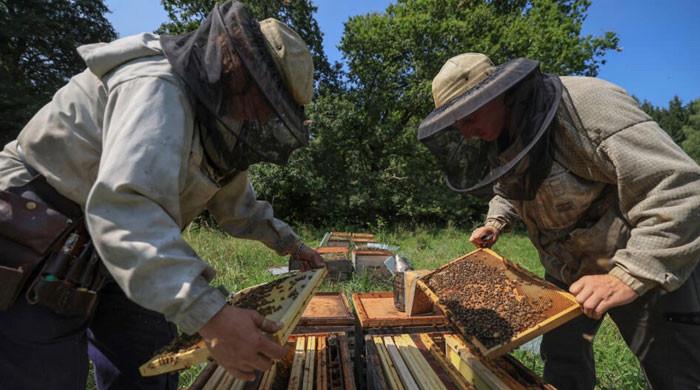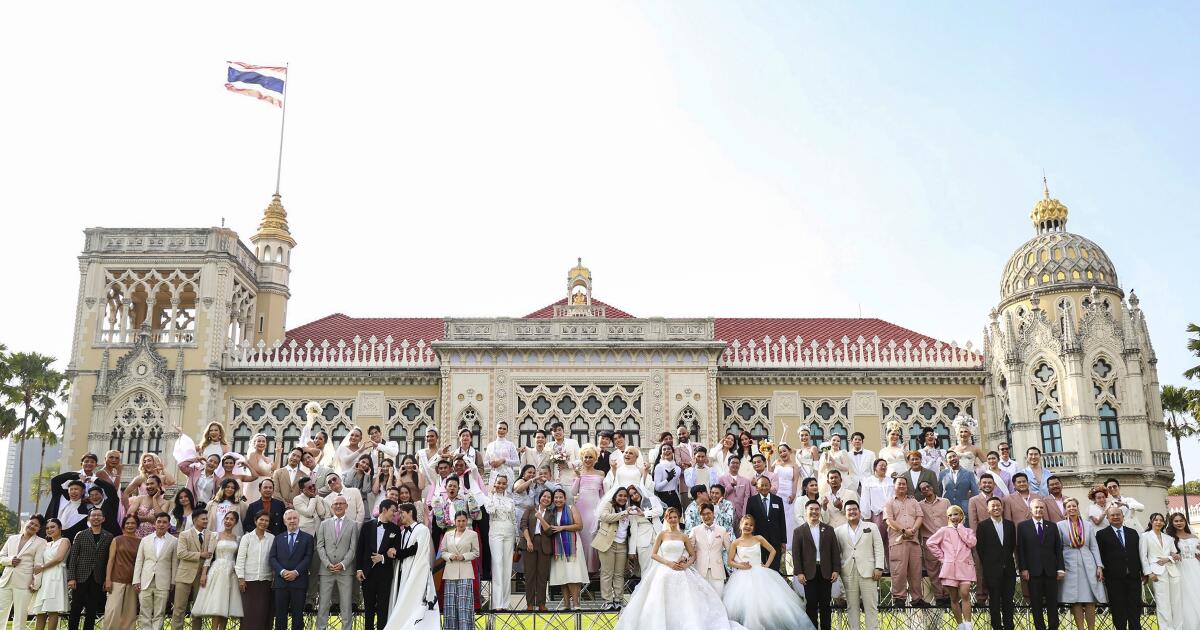Sall's decision to delay the February 25 presidential election has plunged Senegal into one of its worst crises since independence from France in 1960.
Nigerian President Bola Tinubu met his Senegalese counterpart Macky Sall in the capital Dakar as a constitutional crisis continues there over the postponement of elections initially scheduled for this month.
Tinubu, who is also president of the Economic Community of West African States (ECOWAS), is in Dakar for a one-day trip, days after the bloc's foreign ministers held emergency talks in Abuja, the capital of Nigeria.
Sall's decision to delay the February 25 presidential election has plunged Senegal into one of its worst crises since independence from France in 1960.
Protests pitting youth against security forces have become increasingly violent in a country long considered a haven of stability and democracy in West Africa, a region that has recently been rocked by coups and unrest.
ECOWAS has urged Senegal – one of its most stable member states – to return to its electoral calendar, but critics have already questioned the group's influence over increasingly defiant member states. Foreign ministers met in Abuja on Thursday, without representatives of the military-led trio (Niger, Burkina Faso and Mali) that announced their withdrawal from the bloc in January. Guinea, also suspended from the bloc due to a coup d'état, was also not present.
The unrest has also called into question the broader role of the nearly 50-year-old bloc, especially after its warning of a military intervention in Niger last year failed with no sign the country's ousted president is any closer to being restored.
Sall said he postponed the election because of a dispute between parliament and the Constitutional Council over potential candidates who were banned from running.
He has said he wants to begin a process of “appeasement and reconciliation” and reiterated his commitment not to run for a third term amid expressions of international concern.
Opposition leaders denounced the measure as a “constitutional coup” and condemned the repression against protesters.
Senegal's parliament backed the move on Monday, voting to keep Sall in office until his successor takes power, which is unlikely before early 2025. His second term was due to end on April 2.
Activists from the electoral group Aar Sunu (Protect Our Election) called for protests again on Tuesday.

